Description
Familiarity with Treatment
Total thyroidectomy is a surgical procedure that involves the complete removal of the thyroid gland, which is a butterfly-shaped gland located in the front of the neck. The thyroid gland produces hormones that control various metabolic functions in the body.
Procedure
During a total thyroidectomy, the surgeon makes an incision in the front of the neck and carefully removes the entire thyroid gland. The nearby parathyroid glands, which regulate calcium levels in the body, are preserved if possible. The procedure is typically performed under general anesthesia.
Who is it Suitable For?
Total thyroidectomy is suitable for individuals with various thyroid disorders, including thyroid cancer, noncancerous enlargement of the thyroid (goiter), and overactive thyroid (hyperthyroidism). The decision to undergo total thyroidectomy is made based on the specific condition and the recommendations of the healthcare provider.
Who is it Not Suitable For?
Total thyroidectomy may not be suitable for individuals with certain medical conditions or those who are not able to undergo general anesthesia. The healthcare provider will evaluate the individual’s overall health and determine the most appropriate treatment option.
Advantages
- Treatment of Thyroid Disorders: Total thyroidectomy is an effective treatment option for thyroid disorders, including thyroid cancer, goiter, and hyperthyroidism.
- Removal of Cancerous Tissue: Total thyroidectomy allows for the complete removal of cancerous tissue in cases of thyroid cancer, reducing the risk of recurrence.
- Management of Hyperthyroidism: Total thyroidectomy can effectively treat hyperthyroidism by removing the source of excessive hormone production.
Complications
- Hypothyroidism: After total thyroidectomy, individuals will require lifelong thyroid hormone replacement therapy to compensate for the loss of thyroid function.
- Bleeding: There is a risk of bleeding during or after the surgery, which may require additional medical intervention.
- Infection: Infection at the surgical site is a potential complication, although it is rare.
- Damage to Adjacent Structures: There is a small risk of damage to nearby structures, such as the parathyroid glands or the recurrent laryngeal nerves, which can affect calcium regulation and vocal cord function, respectively.
Preoperative Care
Preoperative care for total thyroidectomy involves a comprehensive evaluation by the healthcare provider, including imaging tests and blood work to assess the extent of the thyroid disorder. The individual may need to discontinue certain medications prior to surgery, as advised by the healthcare provider.
Postoperative Care
Postoperative care for total thyroidectomy includes monitoring for any signs of complications, such as bleeding, infection, or changes in calcium levels. The individual will require lifelong thyroid hormone replacement therapy to maintain normal thyroid function. Regular follow-up appointments with the healthcare provider are important to monitor thyroid hormone levels and overall health.
Total thyroidectomy is a surgical procedure performed to treat various thyroid disorders.
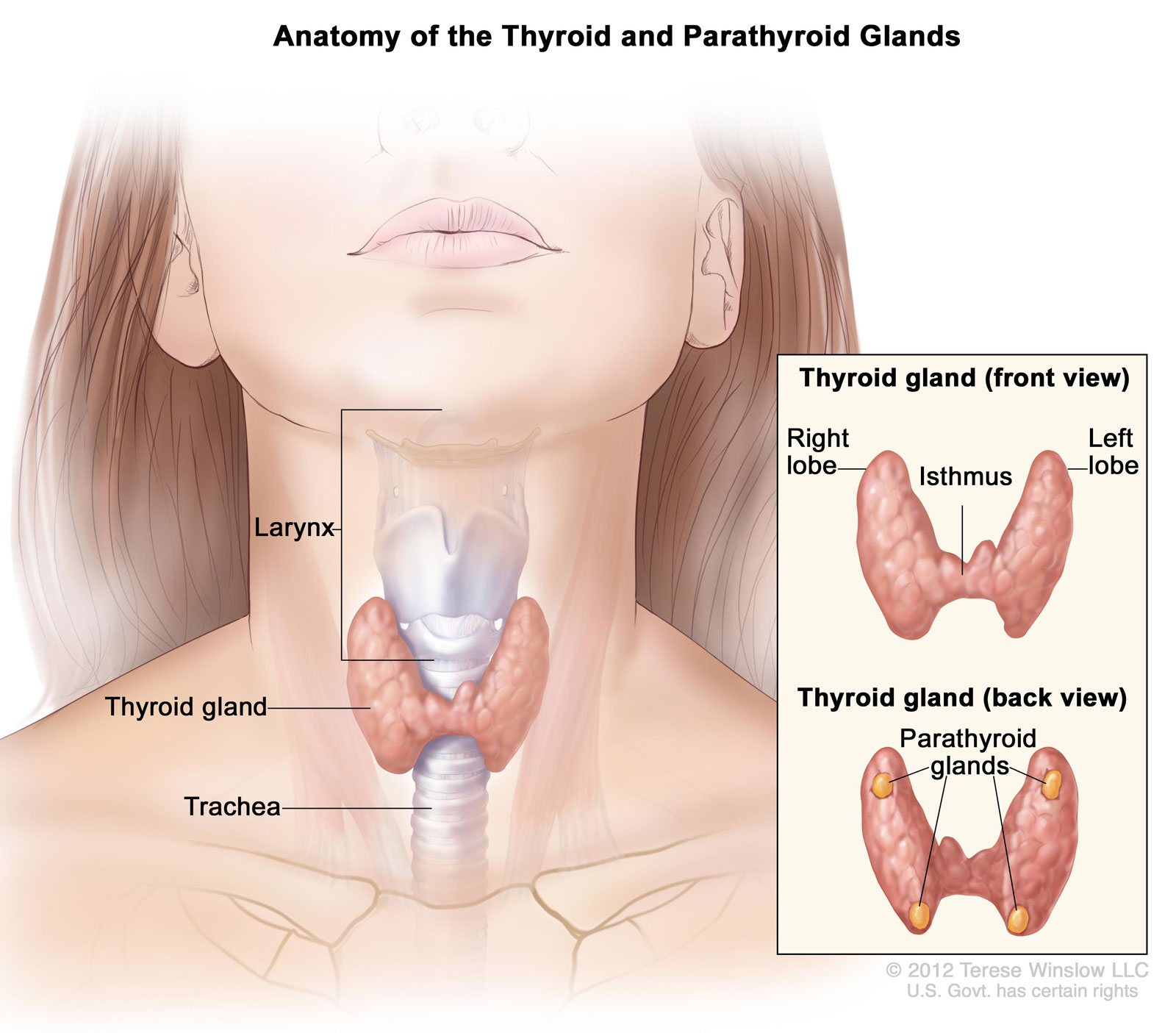
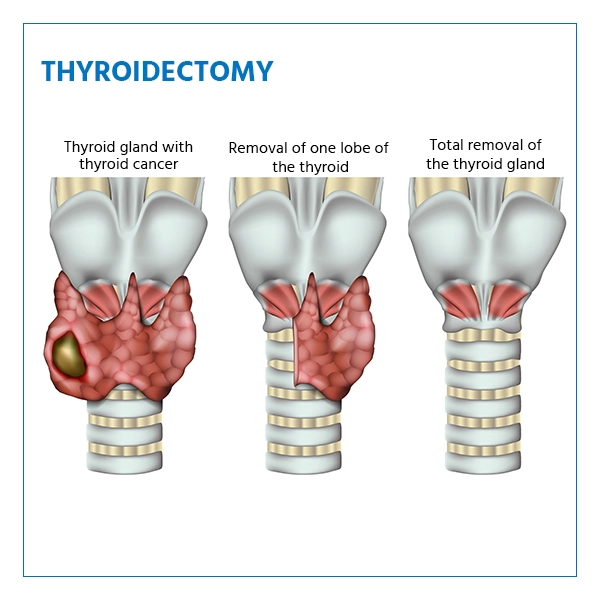
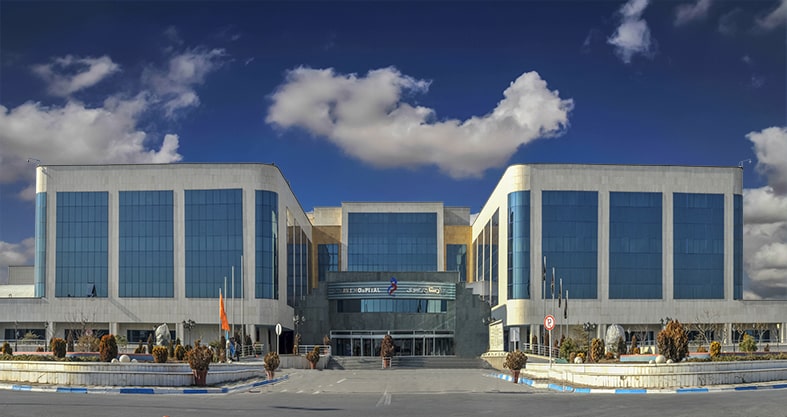


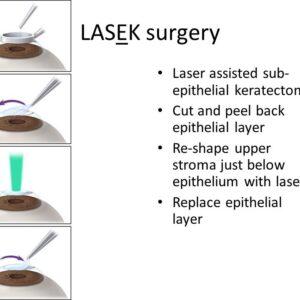
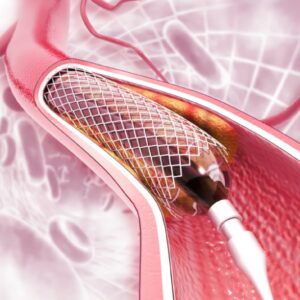
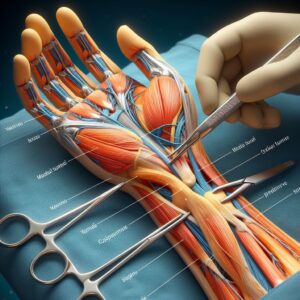


Reviews
There are no reviews yet.